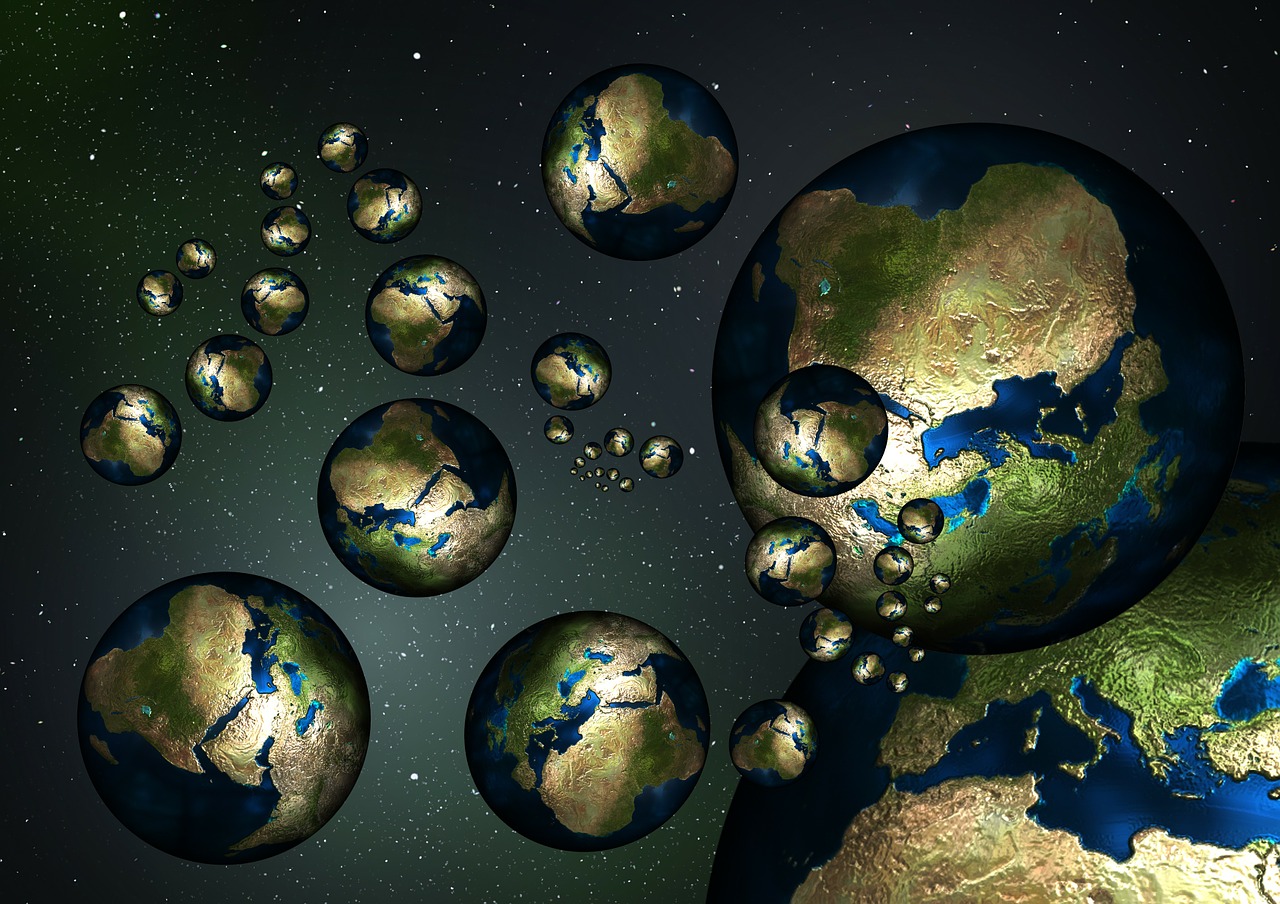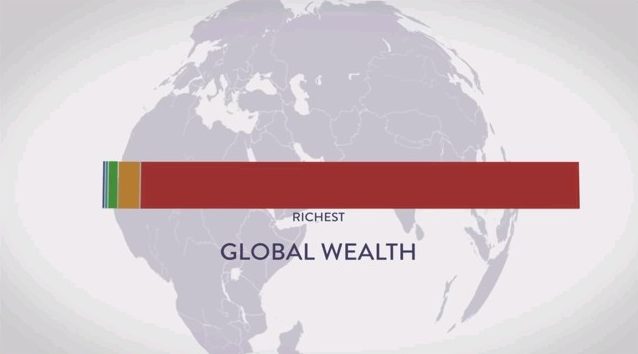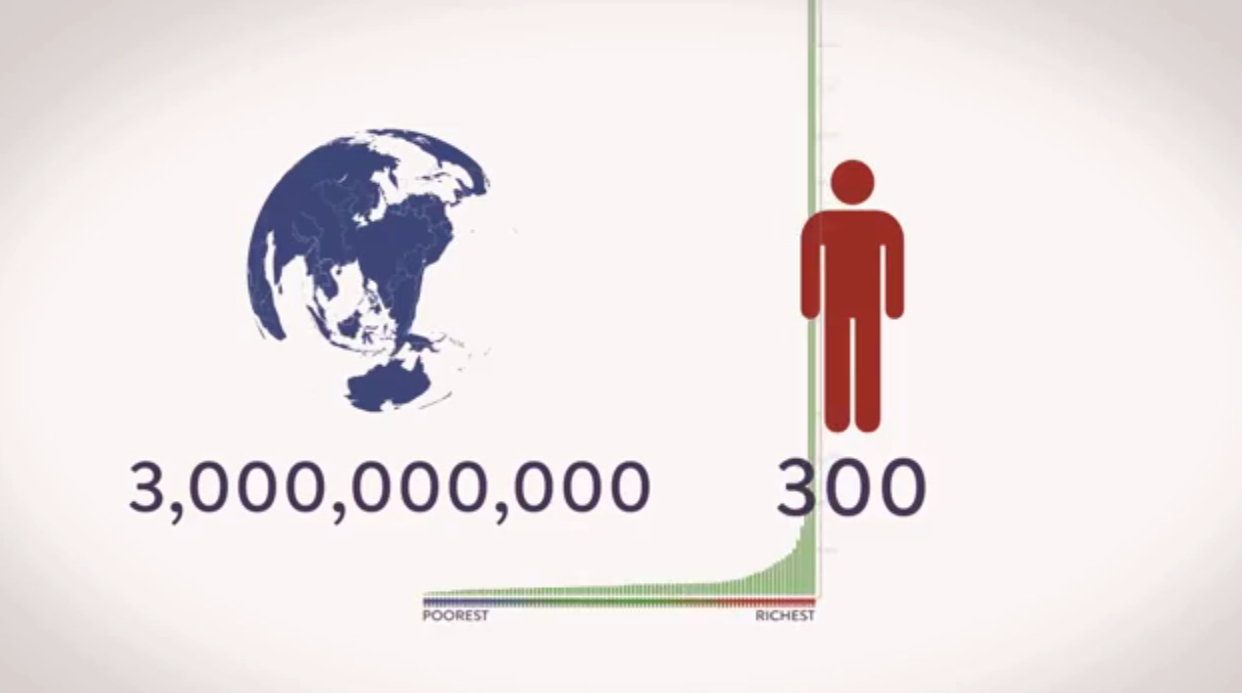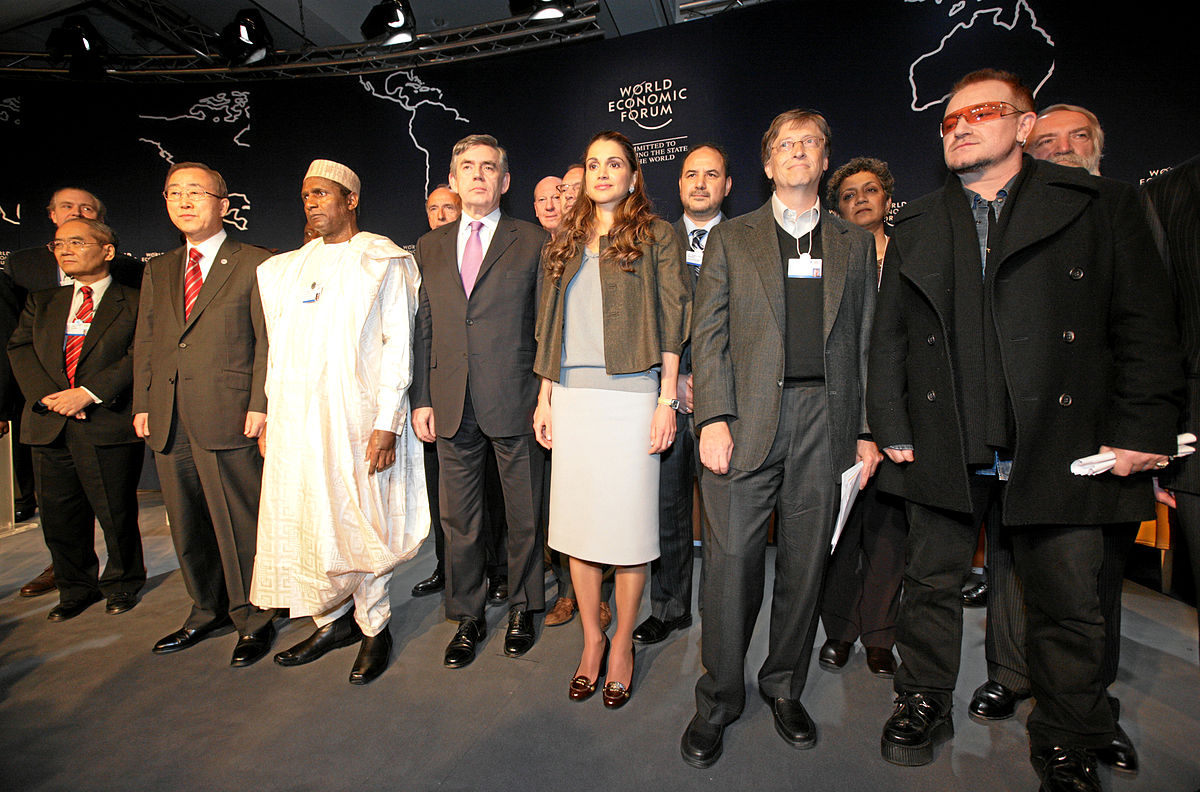
Nick, a serial social entrepreneur and committed wisdom teacher, is the author of Switch On: Unleash Your Creativity & Thrive with the New Science & Spirit of Breakthrough, which has recently been released worldwide.
For a long-time, I was stuck in the classic double bind of modernity. I enjoyed a deep love affair with science — Randomized Control Trials, Evidence-based Solutions, Proofs and Refutations, Logic, Reason… Brilliant! But I thought this all conflicted with an even deeper intuition of something inherently meaningful and interconnected about the universe we live in. I felt intellectually guilty pondering the ‘spiritual’, shuddering at the dreaded ‘S’ word. I have been ridiculed — or looked seriously askance at — when sharing my truest sensibilities about interconnection, oneness and love with others.
So it has taken me years to come out of the spiritual closet, more so because I live in a fiercely atheistic culture, where polite company toes a militant rational, skeptical and down-right cynical line. First I had to admit my calling to my scientific, atheist self. Then came my friends and family, many of whom I am sure still think I’m mad. And now, publicly, I have come out as a fully-fledged teacher of spirituality… whilst also being totally committed to my work as a science-driven innovation expert and change-agent at the heart of government, non-profit and corporate transformation. I see no separation between them.
I could only go public once I had knew I had done my best, as a critical thinker, to ground my connection-based, heart-led approach to tangible personal and organisational change in the available scientific literature on evolutionary theory, affective neuroscience, interpersonal neurobiology, animal behavior, cognitive science and more. Now, having integrated this all together and resolved the double bind for myself, I realise that it is only by every person resolving it within them that we as a global community have any hope of reducing the everyday stress, anxiety/ depression, poverty and climate change that impact us all.
First, some backstory on me and science. I studied hard sciences at the Great Temple of it, Cambridge University. This august institution enjoys basking in the reflected glory of its crucial role in the birth and growth of the scientific project. You can almost sense the labs and the lecture halls oozing rationality and reason. This, after all, is the home of Newton, Bacon, Maxwell, Darwin, Crick & Watson, Turing, Hawking. Their names are synonymous with the progressive disenchantment of the world from religious mythology; and its transformation towards industry and technology. I was happy to join the party, having become a confirmed atheist and utterly anti-religious (yet still with mystical leanings) by my sixteenth birthday.
Unlike many of my peers though, I was also fortunate enough to study the history and philosophy of science too; something I believe should be mandatory for all scientists (as well as those that use science to further their aims, whatever they may be). I used to wake up every day and run to the library, gushing in seminars, as I learnt about all the ways people have tried to know something tangible about the world around us; and what they have tried to do with that knowledge, for good or ill.
Perhaps the most important thing I was taught, based on countless studies on how science is done, is that science is as much ‘created’ as it is ‘discovered’. In other words, the ideas and beliefs we have within us when we study nature influence what we see in our microscopes and test tubes.
The metaphors we use to understand life, impact how we interpret scientific data into the great theories with which we try to explain the world. The reverse is also true. Scientific theories that are en vogue become part of our cultural narrative, and so everyday lives. We can see this clearly in the use of evolutionary theory to justify social hierarchy, slavery, and, ultimately, the ethnic violence of the 3rd Reich. Darwin never said anything about the ‘survival of the fittest’. That was the Social Darwinists who used his thinking to justify how they wanted the social order to look like. In fact, Darwin said, in his third, and less well known, book:
“In the long history of humankind (and animal kind, too) those who learned to collaborate and improvise most effectively have prevailed.”
Now, most of the people on the planet believe that either God or science should dictate truth, and so our lives. The majority of those in positions of power within the global system are members of the latter camp. Being brought up in a secular society and told consistently to rely on a cold and impersonal science to run the world, many of our leaders develop government policy and business strategy that is ruled by the head not the heart.
It is easy to see where this impetus to control comes from: An ego that gets a kick out of being powerful, right and righteous. You can see this will to power in the triumphalism of internet billionaires, AI advocates and the (new) atheists. Science promises its creators / discoverers the power to predict and control nature and, by extension of course, us humans too. A Frenchman named Pierre-Simon Laplace, who was very influential in the growth of science in the 18th Century, illustrated the true goals of much of the scientific project, when he said: We may regard the present state of the universe as the effect of its past and the cause of its future.
An intellect which at any given moment knew all of the forces that animate nature and the mutual positions of the beings that compose it, if this intellect were vast enough to submit the data to analysis, could condense into a single formula the movement of the greatest bodies of the universe and that of the lightest atom; for such an intellect nothing could be uncertain and the future just like the past would be present before its eyes.
Heady stuff indeed! Isaac Newton (who was as much a mystic as sceptic) suggested to them that the natural world could be studied like a machine. Gentlemen-philosophers (very few were workers or women) were no longer controlled by the vagaries of a wrathful God (and the priests who interpreted His commands). They were now in control. So they took nature by storm, measuring every mandible and pulsation in sight. Heirs to the promise of mastery over all domains, scientists have by now counted, weighed, recorded and calibrated just about everything they can get their hands on.
Now it is essential to realize that science cannot be science unless the thinking subject, that means an ‘I’, studies, observe and measures an object, say a rock (geology), brain cell (neurology) or atom (physics) that is separate from it. Science teaches us to see the world ‘objectively’; to study nature with a dispassionate eye. On this separation between Me and It, the entire edifice of modern life — and in particularly the science and technology that help us live such long, fruitful yet often unhappy and alienated lives — has been built. Science can tell us that it is valuable to heal our inner wounds and become more loving and empathic (because we can measure the impact); but little about how to do it, because it takes place within our consciousness, where microscopes cannot reach.
More concerning, freed from worrying about unmeasurable things like peace and love, science has been harnessed by hard-hearted men (and some women) to put the machine of nature to work. Extracting natural resources at scale; producing millions of consumer goods in factories; solving our emotional suffering with pills. Industrial-scale technologies — all premised on objectivity — have been unleashed on the world. Auschwitz, Hiroshima and drone strikes were all logical conclusions of a science divorced from spirit; from love. It impacts us all. The objective study of the world as machine has led to a global obsession with productivity, efficiency and optimisation. This relentless focus on machine-language metrics have sucked out a lot of the meaning and joy from much of our working lives.
One of the great historians and critics of the scientific project, another Frenchman, Michel Foucault, did much to warn us about the impact on humanity of a blind obedience to science. Here is something he wrote, that I highlighted in my first giddy weeks studying philosophy of science, 20 years ago:
Which speaking, discoursing subjects — which subjects of experience and knowledge — do you then want to ‘diminish’ when you say: ‘I who conduct this discourse am conducting a scientific discourse, and I am a scientist’?
I believe that the power of science has been abused. Science has stepped beyond its disciplinary borders to declare that the only things that we can know to be true are those that are seen and measured. The beautiful bouncing baby we call spirituality — a profound sense of interconnection, interdependence and interbeing — was thrown away with the bath water of magical thinking, religious dogma and needless superstition. When God died, much of the intuition, compassion anda sense of connection that makes us so human were excised from modern life with him. These missing links between rational head and loving heart have resulted in our communities careening towards social inequality and our planet towards ecological crisis.
Thankfully, many of the smartest and greatest brains within the scientific project, such a Max Plank, Werner Heisenberg and Carl Sagan to name a few — have stated that science is simply one way (of many) to know the world. Sagan even went as far as to say: “Science is not only compatible with spirituality; it is a profound source of spirituality.” In an essay in one of the most respected scientific journals, Nature, a Professor of Physics at Johns Hopkins University wrote, ‘The Universe is immaterial — mental and spiritual. Live, and enjoy.’
Science does not have the absolute privilege over other ways of knowing. So it is a great shame that so many fervent atheists — many of whom are not scientists — continue to claim that they know The One And Only Truth (theirs of course). This is even more poignant given that many of them seem unable to understand that we can, in the immortal words of the Facebook profile page, be definitively ‘spiritual not religious’. We don’t need religion to enjoy the life-changing, society- transforming spirituality that great leaders like Leo Tolstoy, Nelson Mandela, Martin Luther King and Mahatma Gandhi all advocated. Its just means being human… with an open heart that feels connected to everyone else’s, sensing their joy and pain.
To do this though, we need to give up thinking science has all the answers to how to live a meaningful life of contribution and creativity. This shouldn’t be too tough for most of us, as I have yet to meet anyone who authentically feels, deep within their heart, that they are a disconnected cog in a machine-like world. I believe that even those with the greatest commitment to science — such as my father, whose life is saved each day by shots of insulin made possible by it — have gazed out to sea on a deserted beach in Thailand; reached the top of a mountain trail in the Rockies; or connected momentarily with the sparkling eyes of a newborn baby and known for certain that they are an inherent part of the Universe they see around them.
This sensibility may be deep down, intuitive and perhaps even imperceptible… but it is there. It is us yearning to know our true nature as one with all the cosmos. As soon as we stop needing spirituality to be anything at all to do with a personal God — that one prays to and that can be angry with us — reason no longer stands in the way of intuition, and the double bind can be dissolved.
Interconnection of quarks and leptons can be perceived, in human metaphor, as love. A talking, thinking, anthropomorphic-style creator ‘God’ will always lead us towards dogmatism, arrogance and, above all, fanaticism, none of which are attractive to a free-thinker and child of reason.
However, if we see ourselves simply as interconnected beings, fully plugged into the material universe (and an intrinsic part of it), the conflict is transcended. Einstein opens up a secular, science-inspired spirituality, saying: A human being is a part of the whole called by us universe, a part limited in time and space. He experiences himself, his thoughts and feeling as something separated from the rest, a kind of optical delusion of his consciousness. This delusion is a kind of prison for us, restricting us to our personal desires and to affection for a few persons nearest to us. Our task must be to free ourselves from this prison by widening our circle of compassion to embrace all living creatures and the whole of nature in its beauty.
Secular spirituality does not stop with our own bliss in a yoga centre or meditation class. Heirs to the progressive urges of the reasonable Jean-Jaques Rousseau, Voltaire, Marx and Paine, this form of spirituality is acutely conscious of environmental degradation and social injustice. Yet rather than resort to angry activism, we are committed to dissolving away, in unity, the fear and need that are the defining hallmarks of modernity. When we yoke together spiritual enlightenment (knowing we are all one in some way) with the critical thinking and scientific empowerment at the heart of The Enlightenment, both our personal and social ills can fade away. We all become spiritual activists, heart-led social entrepreneurs, leaders of conscious movements for change.
Love is the message. Love is the start and end point. Love: The conscious human experience of material interconnection. I believe it is the mark of a lover of wisdom (the literal meaning of the word ‘philosopher’) that we always remain open to other ways of knowing the world; and our own blind-spots and assumptions.
Indeed, the job of philosophy is to free us from our cognitive biases, mental limitations and the bewitchment of our ‘felt sense’ by language. Likewise, it is the wisdom teacher’s role to take paradoxes that are hurting people, causing them suffering and resolve them in their teachings, to allow people freedom to truly thrive.
Given the mounting evidence that our current mechanistic worldview has limits — evidence from places as varied as quantum physics, the placebo effect, the challenges of accounting for consciousness, quantum biology, the new psychedelic research, gaps in evolutionary theory and studies on precognition and out-of-body experiences— I believe science will soon engage in a fundamental ‘paradigm shift’ (to quote Thomas Kuhn). Anomalies to the materialist / mechanistic worldview will force us to re-evaluate the foundational metaphors upon which science has been premised. Newton’s clock will be replaced by something more… alive.
Inside this new paradigm, we will still look to scientific research to give us best sense of the truth of things we can see and measure; whilst also knowing that our own intuition, mindful attention and contemplation can often be the best guides to matters of conscience, meaning and heart… things that we cannot really measure, no matter how cool or big our microscopes are. The choice between either loving science or spirituality becomes null and void. We can refuse to engage in useless dichotomies that limit the human spirit’s potential to flourish. We can, instead, expand our consciousness to grok that both science and spirit rock. This raising of our collective consciousness means as much a focus on reducing poverty, food prises, inequality and the costs of HIV medicine, as it does on our own experience of liberation.
It has taken me the best part of two decades to feel comfortable that what I teach is ‘really real’. Before I could stand on stage, whether at a Mind Body Spirit event, multi-national corporate conference or No.10 Downing Street (I have done all three in the last month), and share my worldview on how to help human beings and communities create breakthroughs and thrive, I needed to ‘cross-reference’ the latest science with the key wisdom traditions; and then synthesise and simplify it all into a teachable set of tools and processes that skeptical organisations and individuals could use to break through. As luck, or rather serendipity, would have it, virtually every new scientific paper I have read in the last decade or so (and I have read a lot) seems to fit with this decidedly secular spirituality. The result of my work crunching, unifying and codifying — in order to overcome my own cynical atheism — has been my discovery (and creation) of Breakthrough Biodynamics; and my book introducing it to the world, Switch On: Unleash Your Creativity & Thrive with the New Science & spirit of Breakthrough.
I believe we all can, and must, take it upon ourselves to resolve the double bind that lies at the center of the problems of advanced modernity; and deep within all our hearts. We can be lovers of both science and spirituality without shame, guilt or intellectual heresy. We can then harness both reason and wisdom to guide us into action as we face the inevitable turbulence of a 7+ billion person, 1 planet future. The mechanistic, atheistic worldview, that forces a decisive subject-object duality on an inherently interconnected universe, can only create more suffering for us beings that are fundamentally interconnected, quark to quark, heart to heart.
Then, and only then, will we have the capacity to transform into being the change we want to see in the world ourselves… and the resilience and compassion needed to ensure we spread the change to the world around us.
Will you join me in coming out of the spiritual closet?
Our time has come. Switch On now.









lemme tell ya
the fundamental theorems of mathematics are called such because they can’t be proven, but they’re used to prove everything else in math, and by extension science.
i like to say that science is just religion with quantities instead of deities. they both rely on faith in a paradigm which has proved a valuable tool for evaluating and operating in the world, at some point in time anyway.
i’m not a particular fan of fundamentalism, but i think more essential to most religion is eternalism – that which is everlasting and most core to our being – call it dharma, or the holy spirit. there are also countless ways of life, such as yellow hat buddhism, that emphasize the need for progression. the first buddha said it himself, not to grow attached to any of his specific words or philosophies. to this day the most esteemed buddhist monks battle it out over complex moral issues to enhance to paradigm, and in this respect i see religion MUCH like science.
in summary, i don’t think the answer to making religion and science work in harmony involves find a way to fit religion in scientific consistencies, or to find scientific evidence that validates religion or suggests spirituality. rather i accept science as a modern and pragmatic form or religion, or at least spirituality. try as atheists might, people can never escape their spiritual being. we all have to be confronted by the fact that we are an infinitesimally small part of a greater whole, and that the meaning of our life necessarily reaches far beyond the limits of our understanding
As any researcher is only too well aware, there is much about everyday reality that science simply does not understand. What is “consciousness”? What is a conscious thing made of” How does it work? How is it possible for a conscious thing (let’s call it a “spirit”) to causally interact with a non-conscious thing like a human body and brain? If you are assuming that your brain “is” conscious, then what happens to your brain when your consciousness goes “off” at night when you go to sleep? Your brain is still “there”; but your consciousness is not there. The conscious being who is aware that it “has” a body and is aware of its own awareness: the being that is “you” is not there.
20th century atomic physics describes how “immaterial” electromagnetic energy causally interacts with massive physical atomic matter (electrons and protons). Our brain is made of atomic matter. Our atomic brain generates electromagnetic energy: neural electricity. Some of that neurally generated energy becomes electromagnetic “information” for your consciousness to causally interact with and “experience”. Specific neuron groups generate the energetic entity that “is conscious”. That conscious thing that is made of electromagnetic energy is “you”: the conscious “spiritual” being who is you. As James Clerk Maxwell discovered around 1870, light is electromagnetism. Electromagnetism is “light”. The conscious spiritual you is an electromagnetic entity who is “made of light”.
We actually operate in the longer slower radio bandwidth of the em spectrum, not the shorter faster visible light bandwidth. But electromagnetism is an elastic phenomenon whose wavelengths can be stretched and compressed. Which is why sounds and images can be broadcast on the airwaves in the radio bandwidth, and your TV antenna picks up that energy and your TV reconverts the waves into sounds and images; and the same information can be compressed into the visible bandwidth and transmitted along optical fibers.
In 2014 I published a book laying out the details of this understanding of “consciousness as electromagnetism”. The book is, The Physics of Spirit: God, Heaven and Human Consciousness. As a theory, it “works”. It accommodates all of the evidence within a single explanatory framework that I call neurophysics. It is the physics of our consciousness/brain relationship. And, perhaps surprisingly, it describes the neurophysics by which traditional mystical spirituality “works”.
It’s not a reductionist theory. Far from it, as you might assume from the book’s subtitle. It is not reducing spirituality to mere causal physics. It is taking spiritual experience as the empirical evidence, and explaining the physics by which spiritual phenomena “work”. The only Great Divide between science and spirit is that science has not yet figured out what spirit is and how it works. I hope my book provides the long-sought bridge.